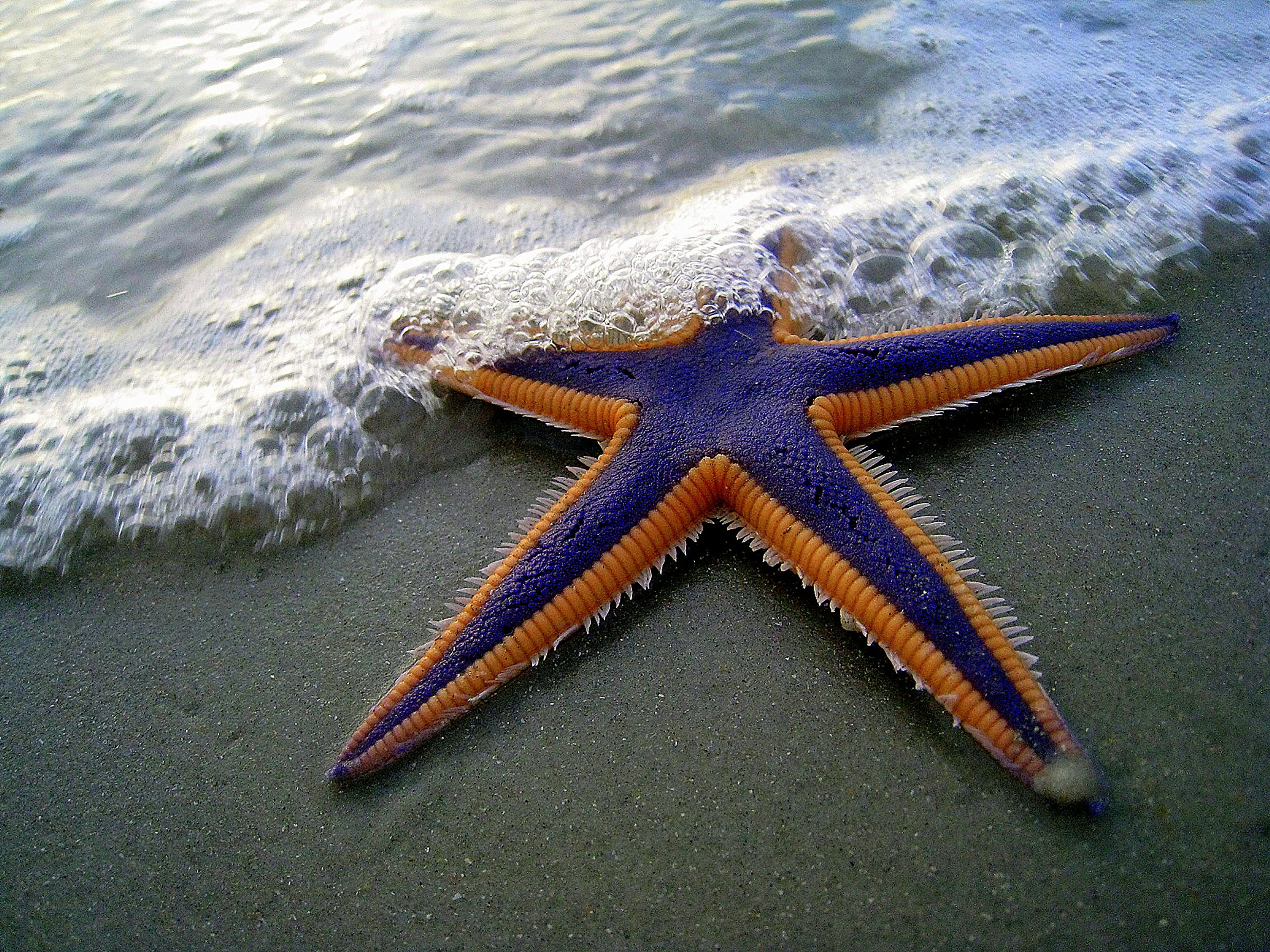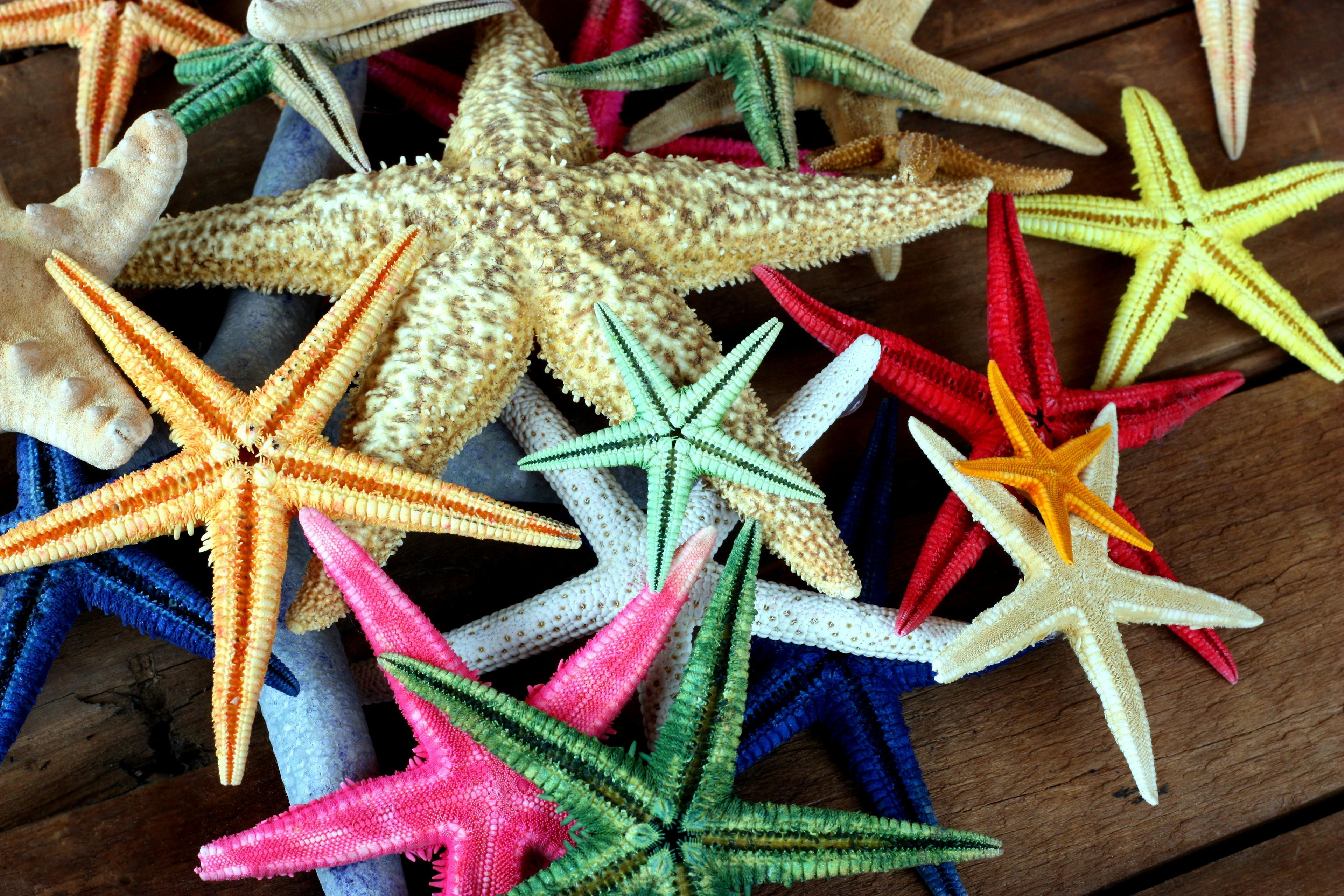Recalibrating for sustainable giving
Two years ago, I decided to donate 60% of my pre-tax income. (I ended up lowering this to 35% after an unexpected move from Mexico to New York, due to cost of living and other factors). This year, I'm giving 10%.
In this blog, I share the existential crises that led me to recalibrate how much I donate. I conclude with how I found a more sustainable framework by shifting from the principle of "each starfish matters" to "help the starfish I can."
Disclaimer: I recognize my immense privilege to make these decisions. I am not trying to compare; each person's situation is unique. Rather, I am sharing in the hope that this is insightful to others.
Why did I donate so much?
After a storm, thousands and thousands of starfish are stranded and suffocating on the beach.
Someone sees an old man throwing a single starfish back into the sea, followed by another. They ask him, "Why are you doing that? Don't you realize you can't make a difference? There are thousands of them!"
The man picks up and throws another. "I made a difference to that one."

For the past two years, one of my six guiding principles has been the phrase "each starfish matters." While I know I can't throw back every starfish, I remain convinced there are incredible opportunities for an individual donor to impact problems like factory farming and global poverty.
Indeed, it has been uplifting to see how far strategic donations can go. For example, $1000 USD can cover a full year of expenses for a household living in extreme poverty. My donations the past few years have brought me meaning, reduced my eco-anxiety and my sense of futility around factory farming, and meaningfully made the world kinder.
Moral Saints, disillusion, and career anxiety
Despite believing my donations were impactful, three factors converged in the past year to make me adjust my giving:
An existential crisis from re-evaluating my decision not to have kids.
I had originally decided not to have kids in large part because of the effect on my career and my personal impact. Surrogacy as a gay person costs $100k+, raising a kid in the U.S. now costs on average $310k, and raising kids would mean I would have less time for my career.
However, last year, I decided to challenge my assumptions around money and impact. After giving myself permission to do so, I felt intense baby fever.
While navigating my confusion, I encountered Susan Wolf's essay "Moral Saints", in which she argues that a life primarily optimized for impact leaves little room for the experiences that make life worth living. For example, she questions lines of thinking like: “time and money spent going to the theatre could have gone towards anti-malaria bed nets.” Was this me with not having kids?
I eventually concluded that I should not let impact be the reason I deny myself kids. Rather, I should build the life I want, then let impact follow. I deserve to pursue my dreams for my own inherent dignity. Likewise, excessive self-denial is a recipe for burnout.
(I resonated with Julia Wise's decision to parent.)
Feeling disillusioned about the state of the world.
The U.S. 2024 election shook my worldview: 2016 was not a fluke, and the majority of voting Americans want a world contrary to my values.
Around the same time, I read Overshoot: How the World Surrendered to Climate Breakdown. The authors describe "overshoot ideology": the Paris Agreement plan is to exceed 1.5°C, then use future technology like carbon removal to get us back down to a safer number, even though that technology does not exist!
While I know that stopping even a tenth of a degree of global warming dramatically impacts our future, the election and trajectory of climate change challenged my sense of agency.
In my personal life, I discovered some people important to me remain much more homophobic than I had thought. Their rejection made me recalibrate how much people change.
Anxiety about my career's longevity.
Artificial intelligence and the risk of automation spooked me: maybe my career as a software engineer was more at risk than I thought? Regardless of AI, having to relocate to the U.S. unexpectedly made me internalize that any job is impermanent.
While I am now less worried about AI—and I trust in my resilience—I value financial security more than before.
---
These factors converged to shift my experience of giving from joy to obligation. Earlier, donations felt like an incredible opportunity to improve the world at little cost to me. Later, donations started to feel like a barrier to my own dreams and security, within the context of a world that often refuses to sacrifice.

"Help the starfish I can"
I felt deeply conflicted when donations started feeling less joyful:
- "Now is the most critical decade to address climate change!"
- "The world needs more moral ambition!"
- "Given that I'm in the global 1%, am I being selfish?"
- "This is values drift: the very thing I was worried about!"
- "Each starfish matters."
I finally felt clarity when shifting from "each starfish matters" to "help the starfish I can." Each starfish does matter! But I should also honor that I am human and have limits. I can make a meaningful difference without assuming the full burden of the world.
This reframe of "help the starfish I can" led me to:
- Scale back to donating 10% through the 10% Pledge from Giving What We Can.
- Step down as nonprofit board chair.
- Identify my dream career: pro-bono software engineering projects for nonprofits, based on how much I've loved the past four years of volunteering.
During this time, I also (re)decided against having kids, though not due to impact or money.
Even though donating 10% slows down my financial goals, it’s worth it for the good it does. Regular giving also provides me an antidote to disillusionment; even though much is indeed out of my control, my contributions matter to the individuals they reach.

While I still plan to live a relatively frugal life, I’m increasing my expenses by around 25% to pursue a part-time master's degree and to move closer to work and friends. I'm also saving for partial financial independence with the goal to eventually work full-time on pro-bono software projects. Meanwhile, I'm using my new free time for two new volunteer projects.
With these changes, donations have shifted back from feeling like an obligation to bringing me joy. Giving myself permission—as a 28-year-old—to balance my own life goals with making a difference in the world gives me more confidence I can sustain both for decades to come.
Eric Arellano is a software engineer at IBM Quantum focused on ending factory farming and mitigating climate change through effective giving and volunteering. Eric first became interested in impact when, at 13 years old, their youth pastor challenged them not to wait to be adults to improve the world. This led Eric to found a nonprofit that raised $30,000 for clean water wells in Ghana. Eric's happy place is farmed animal sanctuaries, showing that a kinder world is possible.